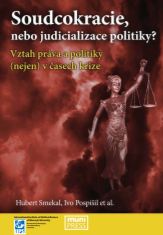
We kindly inform you that, as long as the subject affiliation of our 300.000+ articles is in progress, you might get unsufficient or no results on your third level or second level search. In this case, please broaden your search criteria.


In this final chapter, we briefly summarise the main points raised in the preceding chapters, in order to locate overlaps and common insights. Readers accustomed to turning to the Conclusion right away, pondering subsequently whether it makes sense to read the whole volume, therefore face a much easier task. All contributions are recapitulated here, and we leave it to the reader whether to delve deeper. The book consists basically of two main parts: The first one includes chapters covering the issue of conflict between law and politics on the domestic level, while the second one is concerned with the international realm. As regards the former, our contributors predominantly deal with the problem of legitimacy of the kind of judicial activity whose impact extends well beyond mere passing decisions on individual legal cases; in particular, they focus on the activity of the Czech Constitutional Court.
More...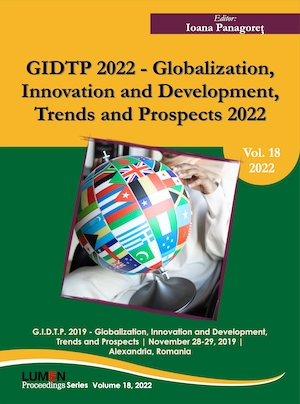
The evolution of international economic-political relations and the means of communication has required, for a long time, a review of the apprehension of spaces and borders. The jurist was not excluded from this reflection, quite the contrary. The criminal sciences – despite the traditional term of “sovereign matter” – have had to adapt to an obvious evolution. The situation is not new; crime is becoming international. Nevertheless, it is no longer a question of being limited to the international crimes creating international criminal law, but of the necessary response of an international criminal law. In fact, alongside crimes that undermine the international public order, States must fight against an internationalized crime. The physiognomy of this crime is now acquired: internationalized, interpenetrated and professionalized. Borders do not seem to be an obstacle to crime. The globalization of exchanges and means of communication strengthens the effectiveness of criminal bands. To this criminal evolution, the States had to react. Again, this is not a recent response. Quickly, the national police collaborated to fight against a blatant and detestable impunity through the game of borders. However, and in order to face the increase in this crime benefiting from the disappearance of borders, States had to overcome their sense of sovereignist withdrawal. The European Union illustrates this new response, going beyond traditional criminal cooperation to ensure a real criminal integration.
More...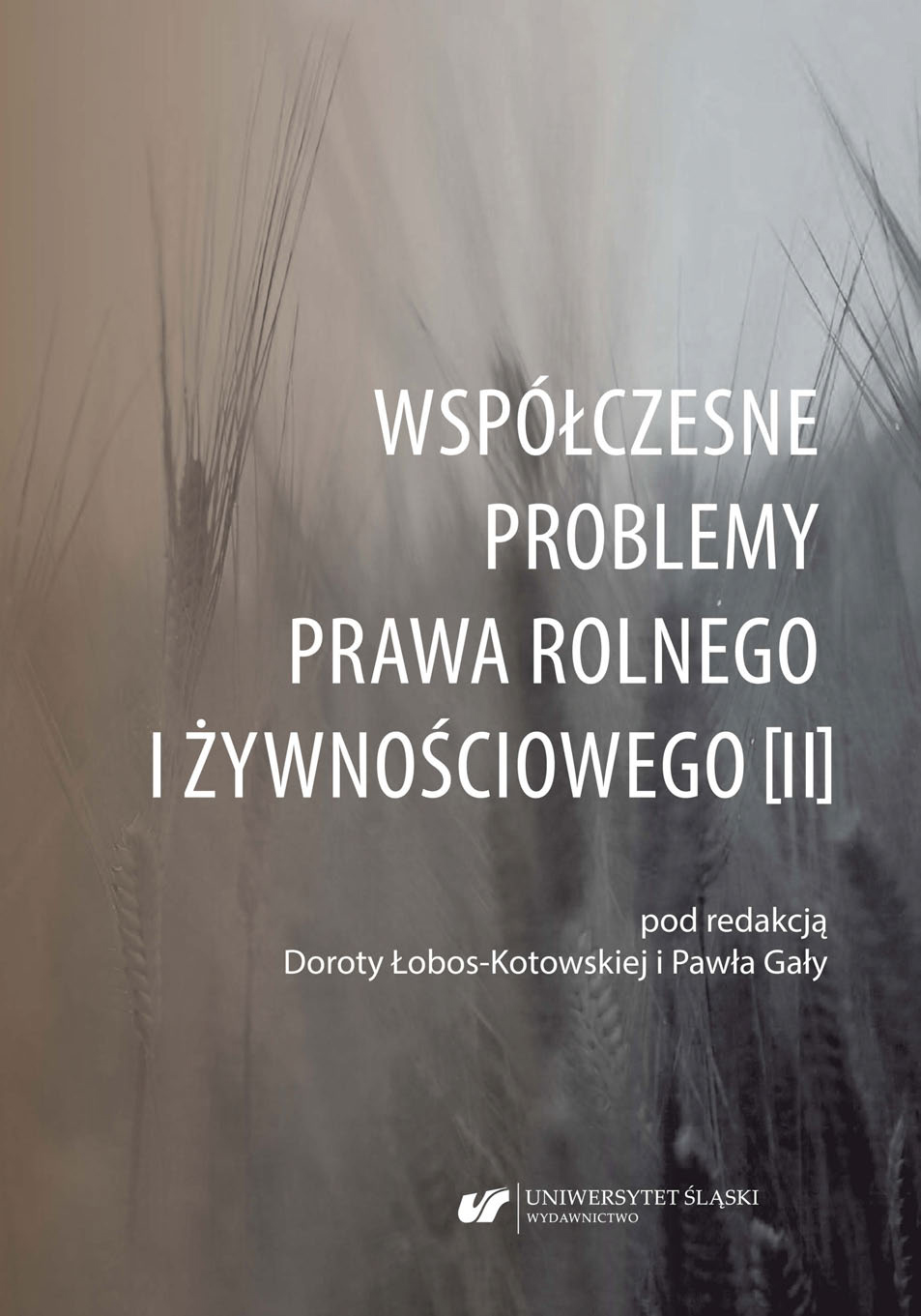
Cultural heritage is a part of the economy that should be successfully used. Traditional food products are becoming a kind of investment for local communities and an incentive to achieve socio-economic benefits. They are part of the heritage, and given the changing trends and the growing demand for local food products, they can contribute to the development of entrepreneurship. Every economic initiative starts with an idea and a resource on which ideas can be developed. All these classic elements of entrepreneurship work the same for products created on the basis of the local food product heritage. The development of entrepreneurship inspired by the heritage of the local food product makes it possible to implement especially those undertakings whose idea is based on locality, neighborhood, ecology, nature, social authenticity and corporate responsibility. This is the opportunity to create something unique, different from the competitors’ offer. The combination of traditional products with modern methods of processing, presentation and sales creates an innovative, highly competitive product. Products of local food heritage create a new clientele among tourists who are more and more aware consumers and residents who want to identify with the place of origin or residence.
More...
Research on contemporary innovative pedagogical practices of Bulgarian parochial education relies on insufficient and inconsistent data. Every church community has responsibility and system of teaching its parish Orthodox values with regard of human rights. Church instruction of children, youth, and adults is not a process of provoking anything incompatible with human rights and social peace. Nevertheless, critical circumstances in last several years demonstrated that such tendencies can appear, when both flocks and pastors are under enormous pressure. Still, in my dissertation we have chosen methodologically not to focus on any negative aspects of the problems of Bulgarian Orthodox schooling and catechetic instruction at churches during last several decades. Scholarly objectiveness also requires that we are aware of obstacles, and stay optimistic, adequate, reflexive, analytical, and systematic, oriented to the future and the better, according to values, and keep building good perspectives and relations. Human rights defence can only support our church subculture within traditional local culture.
More...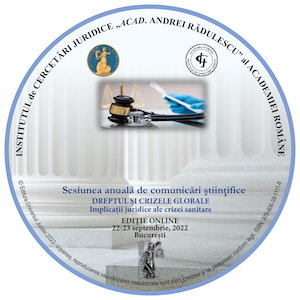
This study aims to present, from a legal perspective, how different technologies and the use of artificial intelligence systems may affect the right to privacy or may change the way an individual chooses to perform certain tasks. The research focuses on the legal framework of the right to privacy, proposals, new regulations and legislative changes that apply to the use of artificial intelligence systems globally.Secondly, it proposes to analyze the possibility that the AI impact assessment on the right to privacy, the guarantees provided and a well-defined legal framework can reduce the negative effects of the use of artificial intelligence systems.Can technology, mass digitization and the functioning of artificial intelligence lead to violations of rights and freedoms, especially the right to privacy? On 21st of April 2021, the European Union published a proposal for a Regulation of the European Parliament and of the Council laying down harmonized rules on artificial intelligence and amending certain Union legislation (Artificial Intelligence Regulation) ensure that artificial intelligence systems placed on the EU market are secure and comply with existing legislation on fundamental rights and security requirements for artificial intelligence systems.
More...
Considering a legal analysis of the national and European provisions on the security policies that states apply to the prevention of online terrorism, it can be concluded that terrorism continues to pose major potential threats to national security. At the national and community level, there has been a systematic concern about identifying and regulating appropriate measures to manage the manifestations of terrorist organizations in the online environment. We point out that, since the 2000s, most terrorist entities have been and are present in the online environment in various forms of manifestation and promotion of their action objectives, and the internet and social networks are for them an easy and ideal platform for propaganda clandestine actions. The purpose of this propaganda is: (1) to expose ideas, concepts and attitudes that define the terrorist ideology, the justification of the cause and the popularization/promotion of the terrorist organization; (2) to recruit new followers and radicalize them along the lines of the terrorist entity; (3) to raise financial funds; (4) to mobilize followers to commit acts of terrorism. The main national and European regulations on the prevention of online terrorism are Law no. 535/2004 on preventing and combating terrorism, Directive (EU) 2017/541 of the European Parliament and of the Council of Europe of 15 March 2017 on combating terrorism and replacing Council Framework Decision 2002/475/JHA and amending Decision 2005/671/JHA of the Council and Regulations (EU) 2021/784 of the European Parliament and the Council of 29 April 2021 on the prevention of the dissemination of online terrorist content. Directive 541/2017 and in its application the Law 535/2004 lays down the online removal of terrorist content which constitutes a public incitement to commit a terrorist offense, and where this is not feasible, mechanisms with effective means of combating terrorism on the internet may be put in place to block access to such terrorist content on the territory of the Union. Also, according to Regulation 2021/782, the presence of online terrorist content has proven to be crucial in promoting the radicalization of people and can lead to and cause/instigate the commission of terrorist acts and therefore has serious negative consequences that are difficult to be quantified by users, citizens, and society in general, as well as by online service providers that host such content, as it undermines user confidence and harms their business models.
More...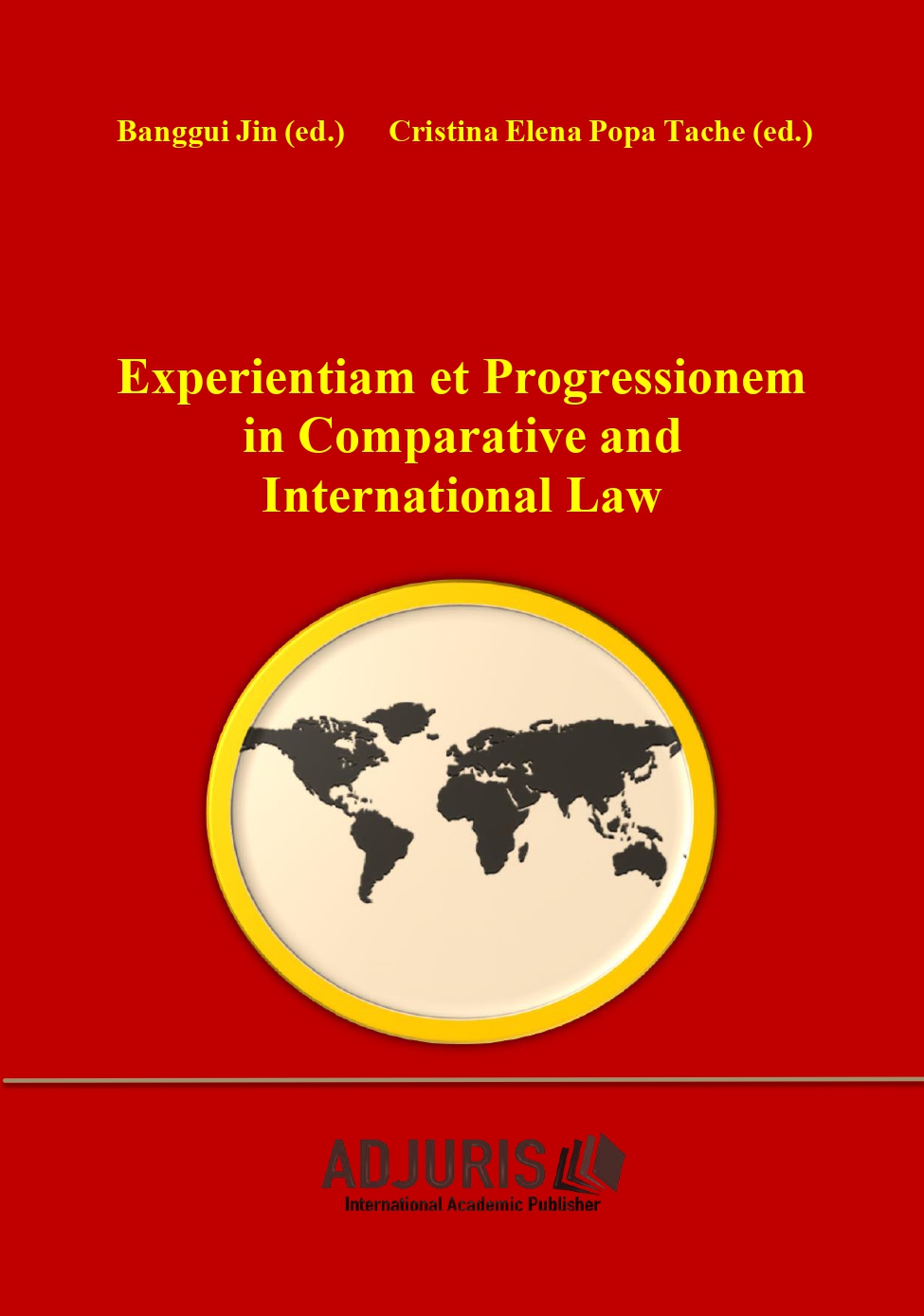
The Migration in a global perspective is contemporary of the Human life, with the most different motivations, in each time and place, within the specific legal frame- works depending on the State law and the International Law. Consequently, in the human global mobility there are different positions and possibilities to these human beings by political, social, economic, and cultural powers. The continuous research is an academic and scientific need, being focus on the global migration and refugees, considering the international legal meaning. There are Regions and States where the Migrants and Refugees are welcome, accepted, and integrated, not only by the legal point of view but the governs behaviors, public policies, social reception, economic and financial support/investment, but in contrast, there are completely opposite positions generating serious problems since the denial to the abandon of millions of human beings. Since the Arab Spring, the reality for millions of Refugees is dramatic by the violation of the Human Rights, the International Law, and States Fundamental Rights. The Public Opinion is vulnerable to the manipulated information in different States, so it has provoked the discrimination, rejection, and violence against Migrants and Refugees. However, it ́s basic to understand the serious context as there are international movements, involving International organized crime acting with Migrants and Refugees – human trafficking, smuggling, exploitations, violence, and all kind of violations. The International Security – legal, protection and criminal (re)action, police authorities – between States and International Organizations have developed different reactions. This is a serious and difficult problem needing a permanent effective work of all structures to protect millions of Human beings. The European Union, working together the international community, as well as with the most different movements – public and/or private – need to develop a concerted and strategic work receiving and integrating the Refugees, which measures must cover and protect all in Europe, regardless their origin.
More...
The crises generated by the Covid-19 pandemic have become a major problem in front of which the states have started to reflect their interests as well as possible. Developments in this area are aimed at deepening bilateral and multilateral cooperation in various areas affected by global crises. The dynamics of international relations were mainly due to the adaptation of regulations to changes in interdependent relations between states and the diversification of their concerns, including for contemporary challenges such as those given by pandemics. Instruments specific to public international law are brought into the spotlight in cases such as pandemic prevention, preparedness and response or in areas such as artificial intelligence or financial technologies. In the face of these challenges, public international law manifests its regulatory function. However, not all states react at the same rate. It is difficult to predict how and if this goal will be achieved, so we will follow the significant developments in the near future. To make this article we used a fundamental research method (directed for the purpose of knowledge) on the part of research that identifies relevant issues, with prospective ramifications and identification of features that promote the coherence of hypotheses. The notions we referred to will be exposed by using the most efficient methods, such as exploratory, descriptive but also explanatory.
More...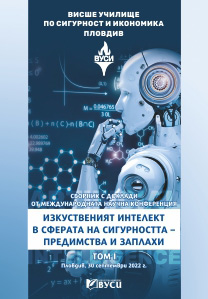
Artificial intelligence in justice must be introduced carefully, measuredly and limited. Therefore, the topic will have to be debated many times more, so that there are guarantees for the rights of citizens and legal entities in the ways of applying artificial intelligence in justice. Since progress is an invariable part of human existence, such a singularity cannot and should not be ruled out in the future, which would require a greater role for artificial intelligence in the administration of justice. The main structural elements of the present work are: public delusions about justice; the judge's discretion; the advantages of artificial intelligence in decision-making; the risks of empowering artificial intelligence to issue a judicial act; and the toolkit for mitigating the dangers of artificial intelligence in litigation.
More...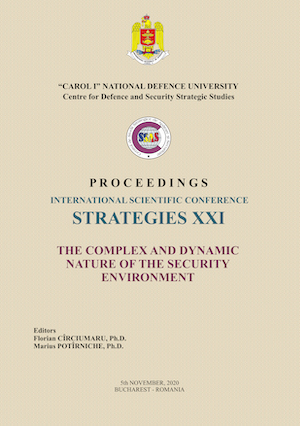
The rapid global technological evolution, the deficit of training and endowment in the information field, the existent disagreement in social and political systems, the resources, technical solutions and the different means, make the EU a dysfunctional body, for the time being. Nevertheless, the European Union has proven to be the World’s leader in adopting General Data Protection Regulation standards (GDPR). The next step of the EU Strategy is to structure public health policies, in conjunction with the protection of personal data. This generates differentiated types of actions for the State of Normality and the State of Emergency. The experience generated by the COVID-19 pandemic highlighted the need to accelerate the coordination of Common Security and Defence Policy and strategies at the European level. The lessons learned after the “STUXNET” crisis, now followed by the“COVID-19 Pandemic” should convince us that the current situation has other valences and that the chaos created by incompetence, lack of training, resources, clear and congruent plans and strategies can have dramatic effects on Humanity.
More...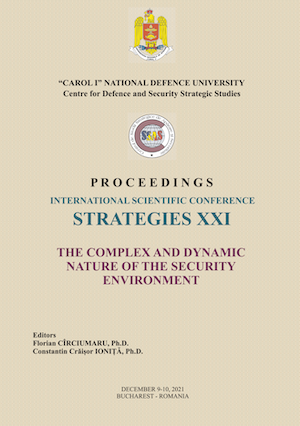
Respect for equal opportunities and control of migration are the basis for the development of any democratic society, the magnitude of these phenomena and their importance on the state balance determining an analysis consistent with the very identity of states and the European Union as a whole, especially as they can influence the values and cohesion of a state. The objective of the research is to present the challenges and vulnerabilities identified in relation to equal opportunities and migration from the perspective of education, their impact on the environment, but also the challenges that may arise in the current global context, caused by the Covid-19 pandemic. The article starts from the exposition of the importance of equal opportunities and migration in a complex security environment with rapid evolutions and significant implications on multiple levels of social, economic, political and security life, and the main conclusion is that at EU level joint efforts must be made to adopt and respect unitary measures to ensure respect for human rights, in order to ensure security.
More...
The evolution of cyber spying technology presents new and rising dangers; coupled with the easy justification for use of the on-going terrorist crisis these dangers have now become major threats to the international security system. This article aims to provide analysis of these threats, using the new software Pegasus as a focal point of discussion. Developed by the Israeli ‘cyber-warfare’ company ‘NSO’, this spyware signals a danger not only to security but freedom of the press and journalistic integrity. This paper’s focus will centre on how this software is used for censorship rather than to combat terrorism and will examine the social and political ramifications of said use. As highlight, the case of UAE activist Ahmed Mansoor and his contemporaries who were writing against authoritarian governments will be discussed. This article will urge that strict global legislation is needed to stop the abuse of spyware as a tool of censorship
More...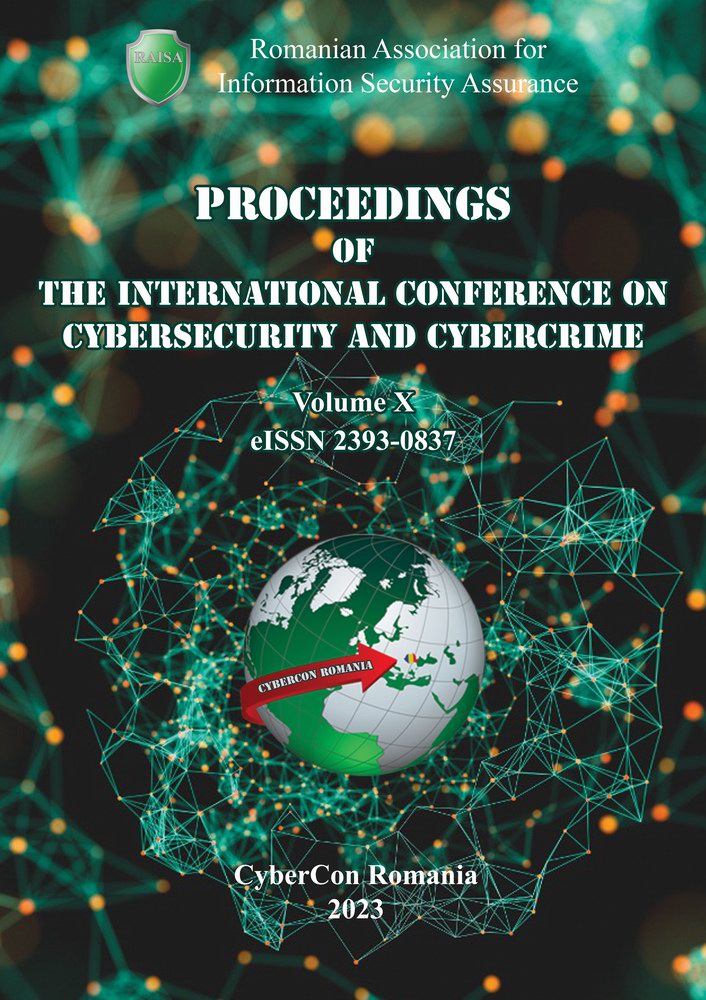
This paper discusses the role of disruptive and innovative technologies for countering the spread of terrorist online content (TCO). In particular, it focuses on the use of Artificial Intelligence (AI) in support to Host Service Providers (HSPs) and Law and Enforcement Agencies (LEAs). The violent and terrorist content is more and more disseminated online taking advantages of the opportunities offered by Internet. The diffusion of terrorist propaganda has a negative impact on the civil society and poses several risks. For this reason, the European institutions published in 2021 the Regulation (EU) 2021/784 to address the misuse of hosting services for the dissemination to the public of TOC. It regulates the measures to be applied by HSPs and Member States’ authorities in order to identify and ensure the quick TOC removal and to facilitate cooperation with each other and Europol. In order to be compliant with these dispositions, AI-based disruptive technologies can provide LEAs and HSPs, especially the small and micro-ones, a concreate support. The implementation of the Regulation and the use of AI technologies have legal and ethical implications that have to be considered. The paper is based on the work and preliminary research conducted in the framework of the European funded project ALLIES, “AI based framework for supporting micro and small Hosting Service Providers (HSPs) on the report and removal of online terrorist content”, Grant Number 101080090.
More...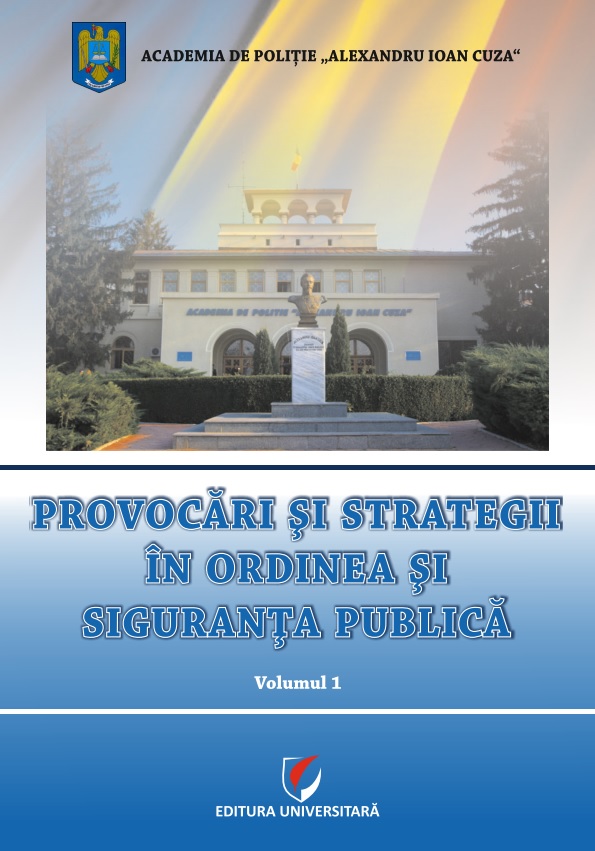
As an EU member, Romania must applies the rules of the Union in all areas covered by it, including home affairs, in order to provide Romanian citizens and European citizens with the assurance of fundamental rights and freedoms. This paper aims to address Romania’s obligation to apply EU law in the police field from two perspectives: The advantages of a uniform framework for the application of regulations on this subject, but also the challenges resulting from the need to include them at national level. As a novelty element and with the conviction that the academic environment is a good one for debates, I intend to integrate in the proposed paper information obtained from the dialog conducted through artificial intelligence in the form of ChatGPT, As a result of the controversies raised in the academic world and to identify whether artificial intelligence of this type can formulate pertinent arguments regarding the application of EU home affairs legislation in Romania.
More...
Through the system of lessons identified, those features can be identified that have the potential to make the work of security organisations more effective. In this context, a viable lessons learned system has been adapted and implemented at NATO level and has become a fundamental strategic component of the management system responsible for organisational development. The implementation of the Lessons Learned System at the level of the Ministry of Internal Affairs arose also from the need to have a mechanism that would allow the transfer of knowledge in an efficient and rapid way to all staff, against the background of a particular staff dynamic, the model being mainly the one adopted at NATO level that has proven successful over time. The lessons learnt system at Ministry of Internal Affairs level has been institutionally adapted from the one developed at NATO level, which was previously taken over also by the Ministry of National Defence. Lessons learned implemented on the basis of the NATO model are of value through their use in: the planning of actions carried out by military organisations and those responsible for maintaining, ensuring and restoring public order; ensuring interoperability between the structures of the Ministry of Internal Affairs and the Ministry of National Defence; the development of operational, procedural and technical standards; the field of logistical procurement; the field of education.
More...
Using the darkweb can be challenging for inexperienced users, as this network is often associated with illegal and dangerous activities. However, there are a number of artificial intelligence apps that can help users navigate the darkweb safely and find important information. These applications use advanced data analysis and natural language processing techniques to identify trusted websites and resources and assess the risks associated with their use. The use of the dark web for criminal purposes is associated with illegal activities such as drug sales, human trafficking, money laundering and others. Artificial intelligence applications can provide advanced tools and technologies to facilitate these activities, providing anonymity and security to users.
More...
The need to harmonize the provisions that regulate the institution of the resumption of criminal prosecution was a priority for the legislator, as a result of the fact that in the context of the new amendments to the provisions of Law no. 135/2010 on the Code of Criminal Procedure was stipulated as a phase of the criminal process the preliminary chamber, through which the legislator sought to respond to the requirements of legality, speed and fairness of the criminal process and to create a modern legislative framework, through which it can establish whether the procedure during the criminal prosecution was legal, so that the judgment on the merits can then be proceeded with, so as to eliminate the excessive duration of the proceedings in the trial phase. It thus became obvious that the emergence of this new phase of the criminal process determined the emergence of new institutions of criminal procedural law regulated by the legislator, so that they could respond to all aspects that arise during the course of the criminal processes in different criminal cases brought to trial, although in judicial practice in criminal procedural matters, different opinions appear relative to the interpretation and application of the rules of criminal procedural law, which are then analyzed and communicated by means of Minutes of the meeting of the prosecutors, in order to standardize the interpretation and application of the provisions of the Code of Criminal Procedure.
More...
It is known that threats, risks and dangers have transnational valences, so that what happens externally can have rapid consequences in the internal plan of national security, generating effects in the plan of regional and even global security. In Romania, the national system for ensuring public order includes the whole formed by legislation, public administration authorities and bodies, specially created and trained forces and resources, which act to guarantee the rights and freedoms of citizens, the protection of public and private property and the normal functioning of the rule of law. In this article I highlighted the fact that the new emerging risks and threats force the managerial system to adapt and find the most appropriate methods that allow it to act proactively in order to reduce potential events with an impact on public order and national security.
More...
Dans l’article « Le paratexte, l’incipit et la clôture narrative dans le roman policier Maigret se trompe de Georges Simenon » nous cherchons à découvrir les éléments paratextuels (titre, nom de l’écrivain, incipit, clôture narrative, etc.) que Georges Simenon, l’un des plus grands auteurs de romans policiers, père du fameux commissaire Maigret a choisi d’utiliser dans son roman, dans le but d’augmenter l’envie des lecteurs pour acheter son livre. Tous ces éléments ont le rôle d’offrir au lecteur les premières informations sur le livre qu’il a choisi pour lire, en l’aidant à se situer dans une perspective adéquate, « puisque s’y conjuguent la reconnaissance d’une appartenance d’un livre à un auteur (et à l’ensemble d’une œuvre) et la mise en relation de l’ouvrage à la personnalité historique que désigne le nom » .
More...